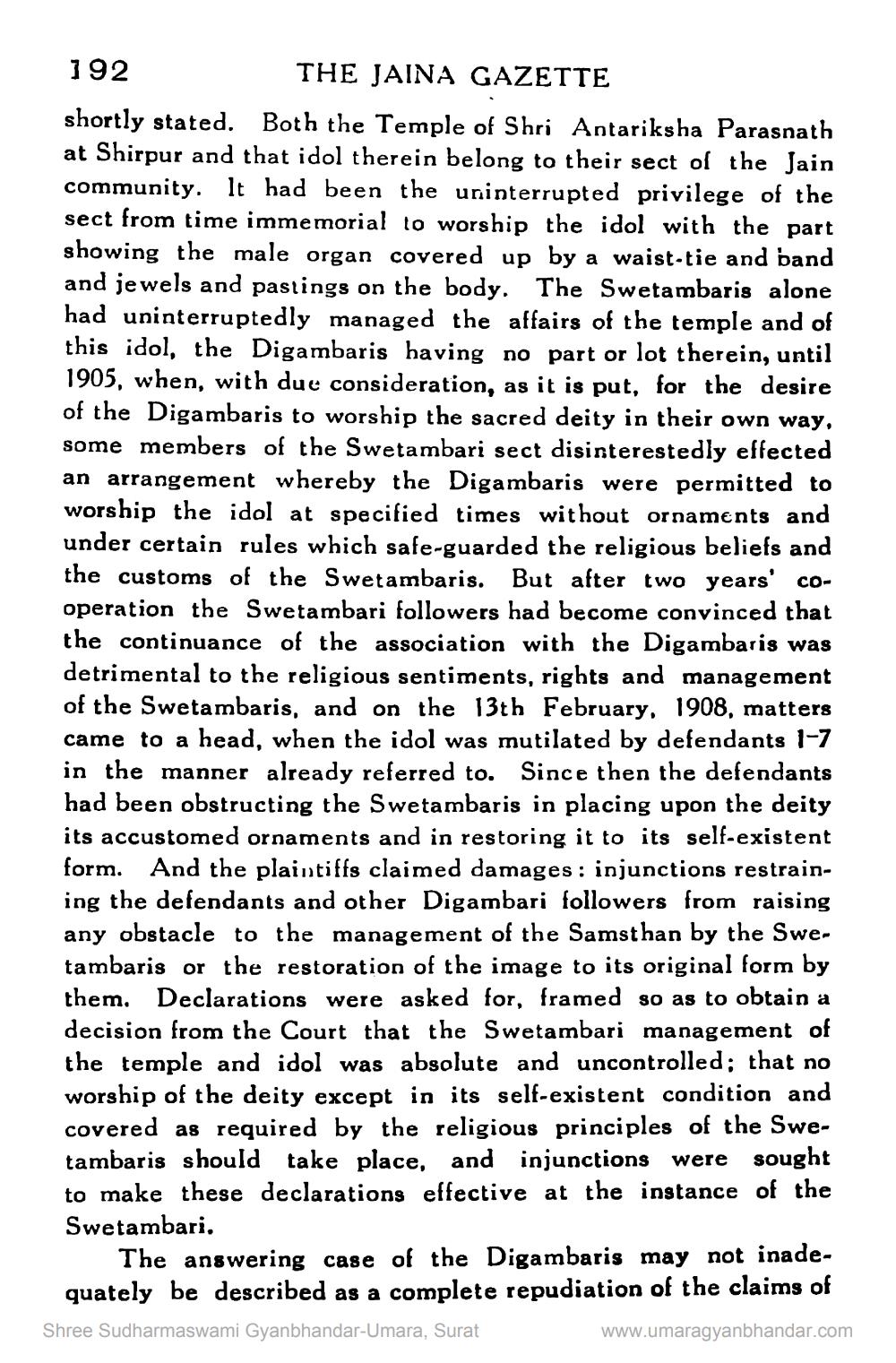________________
192
THE JAINA GAZETTE shortly stated. Both the Temple of Shri Antariksha Parasnath at Shirpur and that idol therein belong to their sect of the Jain community. It had been the uninterrupted privilege of the sect from time immemorial to worship the idol with the part showing the male organ covered up by a waist-tie and band and jewels and pastings on the body. The Swetambaris alone had uninterruptedly managed the affairs of the temple and of this idol, the Digambaris having no part or lot therein, until 1905, when, with due consideration, as it is put, for the desire of the Digambaris to worship the sacred deity in their own way, some members of the Swetambari sect disinterestedly effected an arrangement whereby the Digambaris were permitted to worship the idol at specified times without ornaments and under certain rules which safe-guarded the religious beliefs and the customs of the Swetambaris. But after two years' cooperation the Swetambari followers had become convinced that the continuance of the association with the Digambaris was detrimental to the religious sentiments, rights and management of the Swetambaris, and on the 13th February, 1908, matters came to a head, when the idol was mutilated by defendants 1-7 in the manner already referred to. Since then the defendants had been obstructing the Swetambaris in placing upon the deity its accustomed ornaments and in restoring it to its self-existent form. And the plaintiffs claimed damages: injunctions restraining the defendants and other Digambari followers from raising any obstacle to the management of the Samsthan by the Swetambaris or the restoration of the image to its original form by them. Declarations were asked for, framed so as to obtain a decision from the Court that the Swetambari management of the temple and idol was absolute and uncontrolled; that no worship of the deity except in its self-existent condition and covered as required by the religious principles of the Swetambaris should take place, and injunctions were sought to make these declarations effective at the instance of the Swetambari.
The answering case of the Digambaris may not inadequately be described as a complete repudiation of the claims of Shree Sudharmaswami Gyanbhandar-Umara, Surat
www.umaragyanbhandar.com




